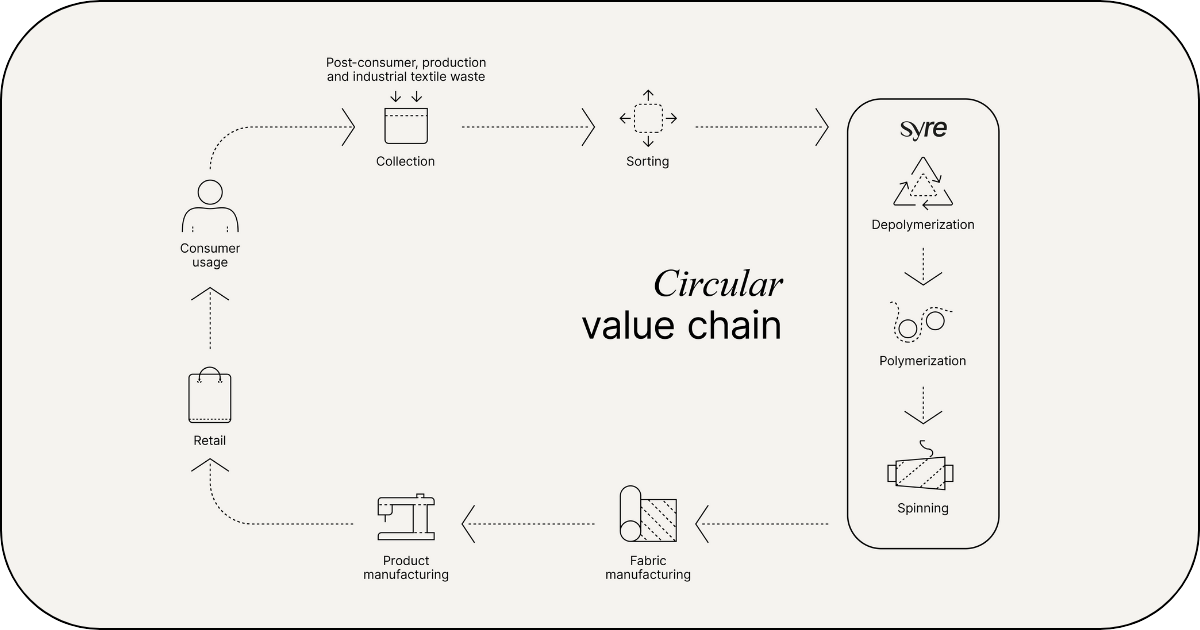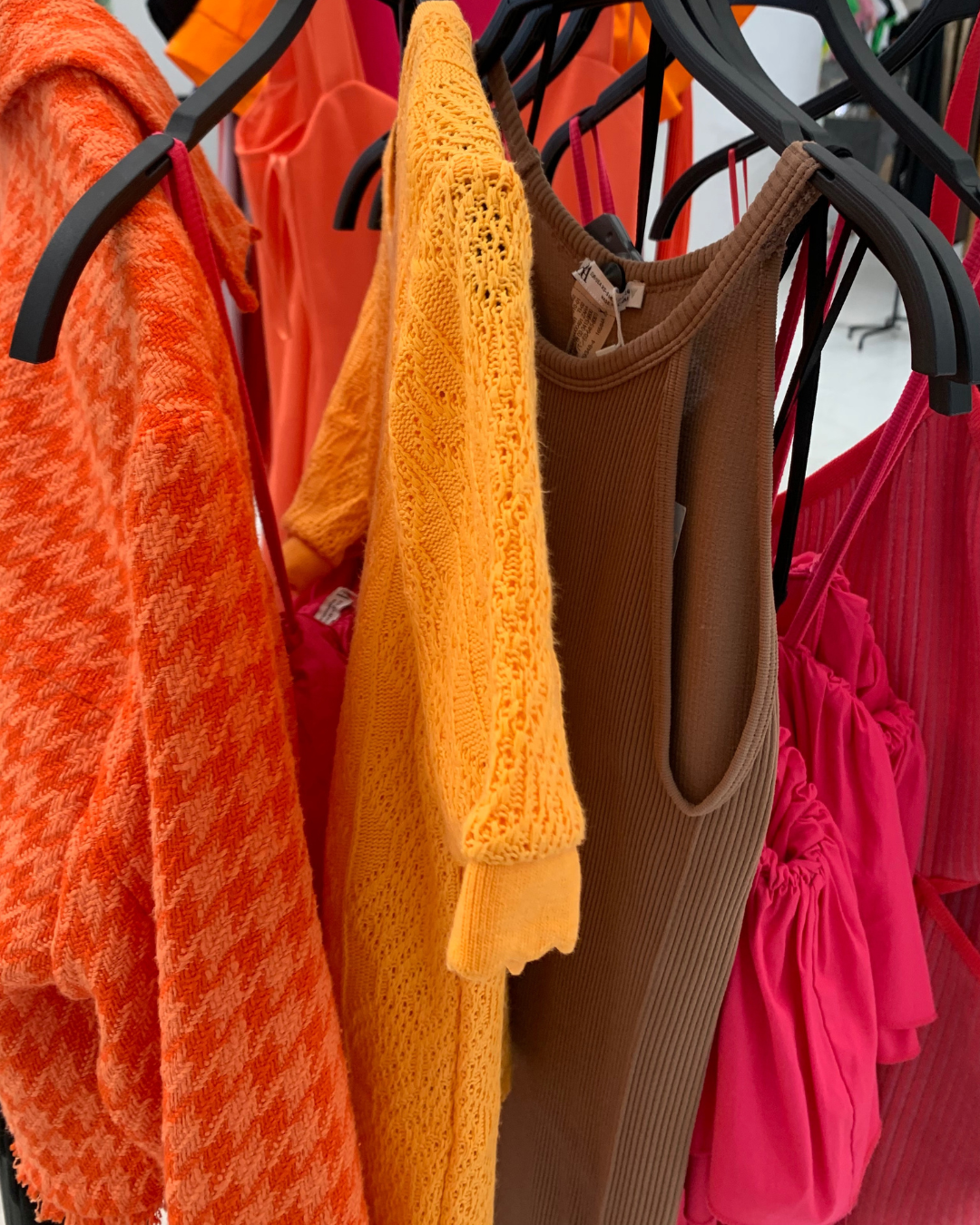H&M Invests $600M in New Textile-to-Textile Recycled Polyester Venture: Syre
H&M Group and Vargas Holding unveiled a new venture aimed at expanding the scale of textile-to-textile recycling, starting with polyester.
Photo: Syre, H&M
Less than a week after the H&M-backed textile recycler Renewcell announced its bankruptcy filing, H&M Group and Vargas Holding, backed by TPG RiseClimate, unveiled a new venture: Syre.
“We've been supporters of Renewcell since 2017, believing in their vision and business concept. However, innovation often faces hurdles, particularly in scalability and commercialization,” H&M told the Business of Fashion in an email. “Syre has been quietly in development for a few years.”
Syre, a textile-to-textile recycler, aims to decarbonize and dewaste textiles, starting with polyester. By implementing textile-to-textile recycling and moving away from rPET bottle-to-textile recycling methods, which lack true circularity due to challenges in material quality degradation and limited recycling cycles, Syre endeavors to lead the transition from a linear to a circular value chain, harnessing textile waste for repeated use while rapidly expanding industrial operations at ‘hyperscale.’
Their solution, Syre says, offers circular polyester of comparable quality to virgin polyester but with superior sustainability performance, effectively reducing CO2 emissions by up to 85% compared to the production of oil-based virgin polyester.
Photo: Syre
Polyester currently makes up roughly 20 percent of H&M's material composition, with viscose making up less than 5 percent. Aligned with H&M Group’s overarching material ambition, striving for 100 percent of materials to be either recycled or sustainably sourced by 2030, including a subgoal of attaining 30 percent recycled materials by 2025, the company now targets 50 percent recycled materials by 2030.
To ensure a consistent supply of recycled polyester, H&M has signed a $600 million take-or-pay agreement with Syre spanning the next seven years. In this contractual arrangement, common in long-term business contracts, the buyer commits to purchasing a minimum quantity of goods or services, ensuring a stable revenue stream for the seller and providing assurance regarding demand. This strategic move echoes the approach adopted by Swedish investor Vargas, which requires upfront commitments from customers and purchase agreements to support substantial investments in businesses focused on decarbonizing major industry sectors.
“Syre marks the start of the great textile shift,” said Dennis Nobelius, CEO of Syre, in a statement. “We envision a world where every textile fiber sees a new day. By implementing true textile-to-textile recycling at hyperscale, we want to drive the transition from a linear to a circular value chain by putting textile waste to use over and over again.”
To achieve this vision, Syre's ambitious plans include building a production plant in North Carolina and expanding globally, with 12 production plants operational by 2032. By then, Syre hopes to produce over 3 million metric tons of circular polyester annually, reducing more than 15 million metric tons of CO2e.














